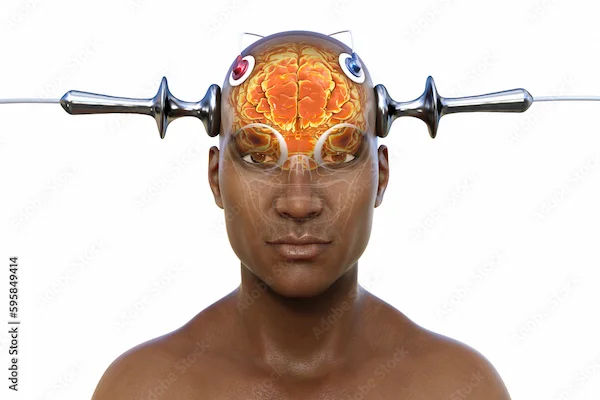Understanding Hypertension and High Cholesterol
Learn about hypertension and high cholesterol, including their symptoms, causes, health risks, and tips for prevention and effective management.


Introduction
Hypertension (high blood pressure) and high cholesterol are two common yet serious health conditions that often go unnoticed until they cause significant damage. Both are major risk factors for heart disease, stroke, and other health complications. The good news is that with awareness, lifestyle changes, and proper medical care, they can be managed effectively.
This article will help you understand what hypertension and high cholesterol are, their symptoms, causes, and how they affect your health. We’ll also share practical tips to manage these conditions and when to seek medical help.
What is Hypertension (High Blood Pressure)?
Blood pressure is the force of blood pushing against the walls of your arteries as your heart pumps. When this pressure stays consistently high, it’s called hypertension. Over time, uncontrolled high blood pressure can damage your blood vessels, heart, kidneys, and brain.
Consult a Top Heart Specialist for the best advice
Symptoms of Hypertension
Hypertension is often called the "silent killer" because it usually has no obvious symptoms. Some people may experience:
Headaches
Dizziness
Blurred vision
Shortness of breath
Chest pain (in severe cases)
However, many people don’t realize they have it until they get their blood pressure checked.
Causes of Hypertension
Several factors contribute to high blood pressure, including:
Unhealthy diet (high salt, processed foods)
Lack of exercise
Obesity
Smoking & excessive alcohol
Stress
Family history
Age (risk increases with age)
What is High Cholesterol?
Cholesterol is a waxy, fat-like substance found in your blood. Your body needs some cholesterol to build healthy cells, but too much can lead to plaque buildup in your arteries (atherosclerosis), increasing the risk of heart disease and stroke.
Types of Cholesterol
There are different types of cholesterol.
1. LDL (Low-Density Lipoprotein) – "Bad" cholesterol that clogs arteries.
2. HDL (High-Density Lipoprotein) – "Good" cholesterol that helps remove LDL.
3. Triglycerides – Another type of fat that increases heart disease risk when high.
Symptoms of High Cholesterol
Like hypertension, high cholesterol usually has no symptoms. The only way to know is through a blood test (lipid profile).
Causes of High Cholesterol
High cholesterol may be due to:
Unhealthy diet (fried foods, trans fats, excessive sugar)
Lack of exercise
Obesity
Smoking & alcohol
Genetics (familial hypercholesterolemia)
Diabetes & hypothyroidism
How Do Hypertension and High Cholesterol Affect Health?
When left untreated, both conditions can lead to:
Heart disease (heart attack, heart failure)
Stroke (due to blocked or burst blood vessels)
Kidney damage (high BP strains kidney blood vessels)
Peripheral artery disease (poor circulation in legs)
Vision problems (damage to eye blood vessels)
The combination of hypertension + high cholesterol significantly increases these risks.
How to Manage Hypertension and High Cholesterol?
The good news? Lifestyle changes and medications (if needed) can control both conditions effectively.
1. Dietary Changes
Reduce salt intake (avoid processed foods, pickles, chips).
Eat heart-healthy foods – Fruits, vegetables, whole grains, nuts, fish (rich in omega-3).
Limit unhealthy fats – Avoid fried foods, red meat, butter, full-fat dairy.
Increase fiber – Oats, beans, lentils help lower cholesterol.
2. Exercise Regularly
Aim for 30-45 minutes of brisk walking, cycling, or swimming daily.
Helps lower BP, reduce LDL, and boost HDL.
3. Maintain a Healthy Weight
Losing even 5-10% of body weight can improve BP and cholesterol.
4. Quit Smoking & Limit Alcohol
Smoking damages blood vessels & lowers HDL.
Excess alcohol raises BP and triglycerides.
5. Manage Stress
Practice deep breathing, yoga, meditation.
Chronic stress can worsen BP and cholesterol.
6. Regular Health Check-ups
Get your BP checked regularly (at least once a year).
A lipid profile test every 4-6 months if you have high cholesterol.
When to See a Doctor?
Consult a doctor:
If your BP is consistently above 140/90 mmHg.
If your cholesterol levels are high (LDL > 130 mg/dL, HDL < 40 mg/dL).
If you have chest pain, severe headaches, or dizziness.
Early detection and treatment can prevent complications!
Conclusion
Hypertension and high cholesterol are manageable with the right approach. Small lifestyle changes today can lead to a healthier heart tomorrow.
Consult a Top Heart Specialist for the best advice
Consult a Top Heart Specialist for the best advice

Dr. Abhishek Rathore
Cardiologist and Electrophysiologist
7 Years • MBBS, MD (Gen. Medicine), DM ( Cardiology ), Post-Doctoral Fellowship in Cardiac Electrophysiology.
Indore
Apollo Hospitals Vijay Nagar, Indore

Dr. Sushith C
General Physician
2 Years • MBBS
Bengaluru
PRESTIGE SHANTHINIKETAN - SOCIETY CLINIC, Bengaluru

Dr. Anand Ravi
General Physician
2 Years • MBBS
Bengaluru
PRESTIGE SHANTHINIKETAN - SOCIETY CLINIC, Bengaluru

Dr. Bhethala Sharan Prakash
General Physician/ Internal Medicine Specialist
5 Years • MBBS MD
Bengaluru
PRESTIGE SHANTHINIKETAN - SOCIETY CLINIC, Bengaluru

Dr. Sarita Rao
Cardiologist
17 Years • MBBS, DM (Cardiology)
Indore
Apollo Hospitals Vijay Nagar, Indore

.jpeg)

